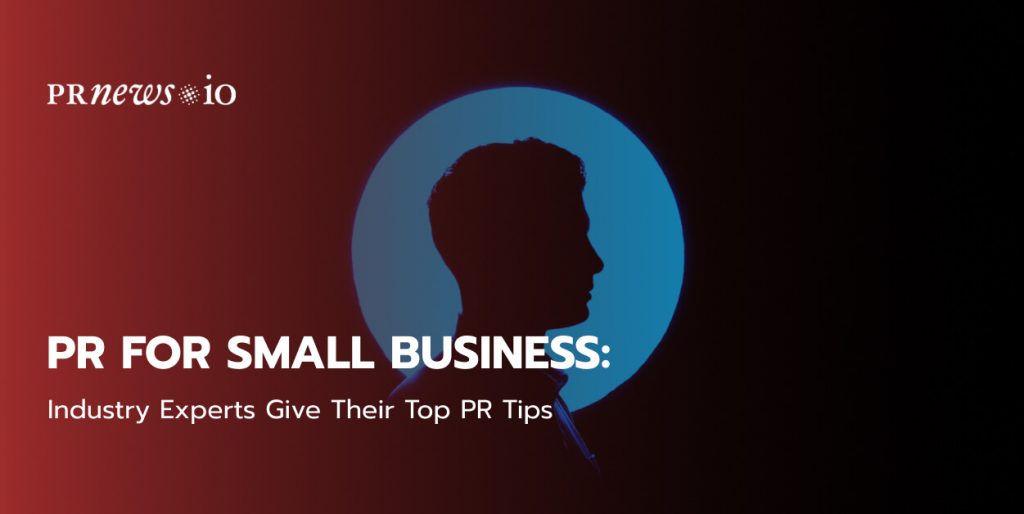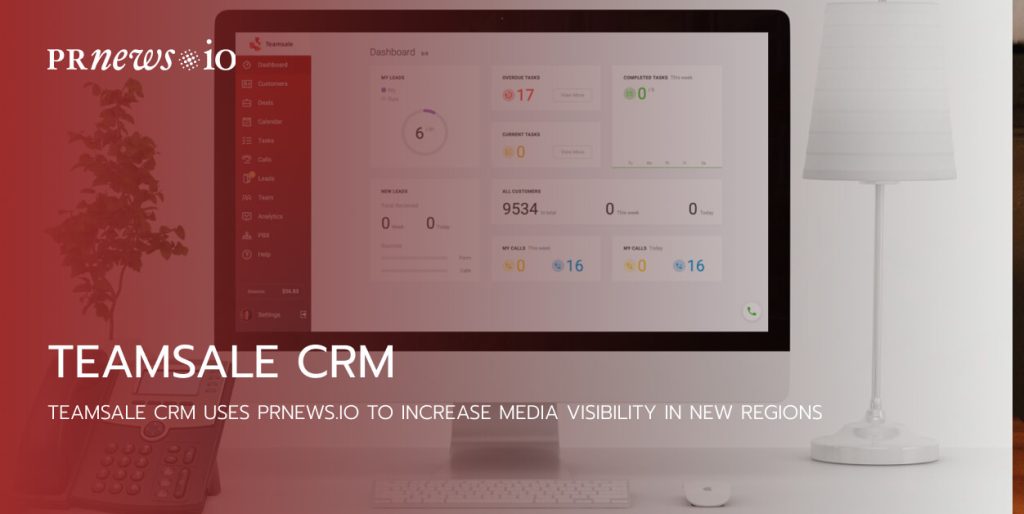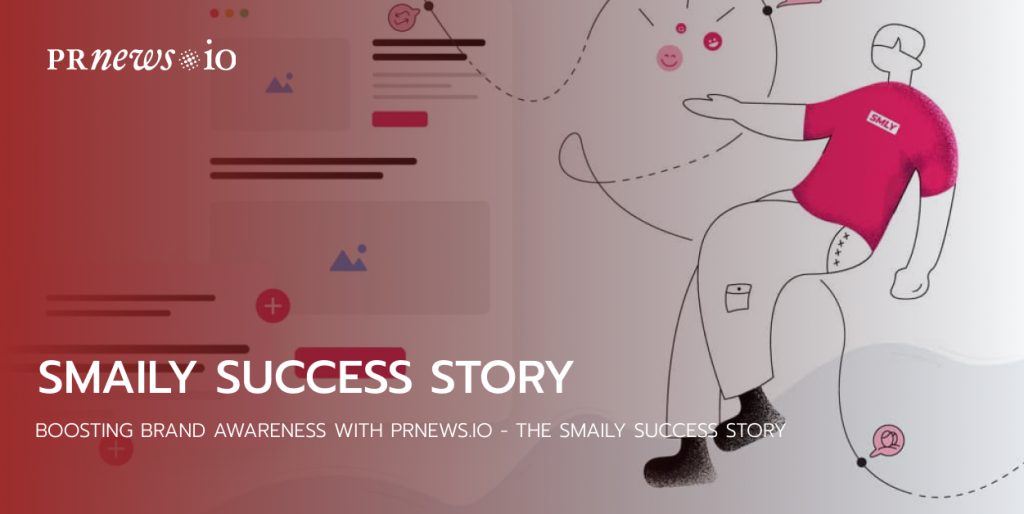
Generating buzz for a new company can be difficult, especially if you don’t have a large budget for marketing and advertising. However, public relations is a great way to get your company’s name out there, and there are many creative ways to do it.
When you’re a small business, you likely struggle with finding the time to tell your own story on a regular basis. It’s one thing to create content for social media and engage with customers online, but it’s another thing to have someone else talk about you and offer third-party credibility.
Here are some PR tips for small businesses that want to start taking steps toward a strong media relations strategy.
Building a Brand Story
One of the most important aspects of public relations for small businesses is building a strong brand story. A brand story is the narrative that defines who you are, what you stand for and why you do what you do. It’s a way to connect with your audience on a deeper level, and to differentiate your business from your competitors.
A strong brand story is important for several reasons. First, it helps build trust with your audience. When you have a clear and compelling brand story, it shows that you’re authentic and that you have a purpose beyond just making money. Second, it helps you stand out in a crowded market. A unique and compelling brand story can be a key differentiator that sets you apart from your competitors. Finally, a brand story can help guide all of your marketing and PR efforts, ensuring that everything you do is aligned with your brand’s values and mission.
Tips for Creating a Compelling Brand Story
When creating your brand story, keep a few key tips in mind. First, focus on your audience. Your brand story should be tailored to resonate with the people you want to reach. Identify the scope in which your story is best told: local, state, national or global. It determines the type of media you will research, contact and pitch. You can establish your reach by where your product is used. In some cases, you may need to reach both local and national or local and global.
Second, be authentic. Your brand story should be true to who you are as a business and what you stand for. Third, make it emotional. People connect with stories that evoke strong emotions, so try to tap into your audience’s feelings.
Determine your story’s key moments
You need to know what your story is and make sure it’s newsworthy. It will influence your PR strategy and determine which outlets you’ll target. Create periodic tables to record proper events, potential news, etc. If you secure this segment, you now have high-quality footage you can leverage elsewhere.
To create a compelling brand story, start by defining your brand’s mission, values and unique selling proposition. Use these as the foundation for your story, and then build on it with personal anecdotes, case studies and other examples that illustrate your brand’s values and mission in action.
How to Use the Brand Story in PR Efforts
Once you have a strong brand story, you can use it in your PR efforts to build relationships with journalists, influencers and other key stakeholders. For example, you can use your brand story to pitch stories to journalists that align with your brand’s mission and values. You can also use your brand story in your social media and content marketing efforts, to help build engagement and loyalty among your audience.
Working with the Media
Make a media list
If you’re doing lots of media outreach, it’s easy to forget who you’ve contacted and what you’ve contacted them about.
Maintain a proper record: segment it by name, outlet, location (important if doing national or global outreach), email, phone (if applicable), focus and interests, social handles and notes from previous interactions.
It’s hard to get placements for small businesses, so you must customize your pitch according to the recipient. Narrow down your list to journalists, writers, producers and bookers.
The journalist and business owners’ goals will primarily diverge. A few journalists will cover news and events relevant to the business. We need to think like journalists in this situation. It can be difficult to find or connect with relevant journalists. Finding the correct match among the thousands of journalists available can make the remaining work much simpler.
A smart place to begin is social media. Follow a journalist who has a comparable interest in the company. Recognize the topics they like to discuss and post on social media. You can get in touch with them by mentioning them in a tweet or on another social media post. Your interaction should attract people’s attention right away.
Crafting your pitch is all about timeliness, relevance and, sometimes, pure luck.
Whether it means your company will be mentioned as part of a bigger story or something more exclusive, your pitch is important. Keep your pitch as short and sweet as possible.
You’ll need a brief introduction and then get right to the point. Answer the 5 W’s and how (This refers to the six questions that a reporter should answer in the lead paragraph of a news story: Who, What, Where, When, Why, and How) in less than two paragraphs.
Send sources—even if it’s not you.
A great way to build a relationship with journalists and establish that you understand who or what “makes” a story is by providing them with information and sources that don’t necessarily have anything to do with your company.
Getting media ready
Interviews are a great way to generate PR for your small business. You can give interviews to local newspapers, magazines, blogs or even TV and radio stations. This is a nice way to get your company’s story out there.
Depending on the medium of your interview, you’ll want to prepare accordingly. The most important tool in your media arsenal is a key messaging guide—the most important things about your company and story. It may include:
- Business tagline
- What you do
- Mission, values and philosophy
- 30-second sound bites of all key offerings
- Social media handles and website
- Other pertinent information
- Get creative with your content
Get creative with your content
A useful way to generate PR for your small business is to get creative with the content you produce. It could mean creating interesting infographics, videos or blog posts that will attract the attention of the media and the public.
Industry Experts about PR for Small Business
Paola Castillo, communication consultant for Latam startups, PR Firm Get Linked Media.
The best tips to get PR for small businesses are:
-Don’t try to be the main character. Help with a topic, investigation or trend. Perceive yourself as an expert, but don’t try to make it all about you; it’s about the story that the reporter is working on. Maybe next time it will be about you.
-Check if your business can share data that is relevant to your industry. Do you have software that helps little auto shops give services to their customers? Maybe you can share statistics about the most wanted car service during winter.
– Run a free workshop for reporters. Knowledge is always a gift. Book a conference room and invite media members to discover the latest trends in your area.
These three strategies have helped a lot of startups with their PR.
Kirill Sajaev, an Executive Director and the Founder of Auq.io
Public relations professionals can increase an organization’s visibility and credibility among target audiences through carefully planned and executed communication. Public relations for new businesses focus on building a positive reputation for the company through various forms of advertising. Now the question is, how to get PR for your small business?
Share your higher purpose with the community.
It is essential to define your company’s values and provide a unique angle to the media, as you are probably not the first to market your product or service. This can put you in a position of thought leadership in the press, which can be wonderful for your company’s reputation.
Opportunities for going public directly should not be underestimated.
Rarely does a company bring in a public relations expert during the brainstorming phase. However, the degree to which the public will be drawn to your business is primarily determined during this phase, when your brand’s architecture is being developed. Your small business will be better positioned to acquire customers quickly and organically if you take the time to craft a fantastic culture full of interesting spokespeople, captivating language and approachable values.
Build something interesting.
Every piece of content you create contributes to and expands upon your brand’s story. Maintaining a consistent tone across your digital channels speaks highly of your professionalism. If you are going to put in the time and effort to make content, you might as well make sure it’s good for more than just your ego.
Lulu Albanna, Co-Founder of WRC Media.

Promote an event.
The purpose of organizing an event is to provide a pretext for inviting customers and members of the media to attend. Because any coverage of your company that you receive will help spread the word about your brand beyond the people who attend the event, the media is the most critical component of your public relations plan.
Think of holding a workshop to demonstrate your newest products or a party to celebrate the opening of your new site and cut the ribbon. If you own a retail business, you may want to host an event at your shop, such as a fashion show, showcasing the most fashionable looks of the current season. Putting on a cooking demonstration with a professional chef is a super idea if your company is in the food industry.
Corey Tyner, Founder & President of Buy Yo Dirt

Communicate with a higher purpose.
In today’s startup culture, it’s likely you won’t be the first to market with a good or service that addresses the issue you’re trying to address in your industry. You’ll unlikely gain any momentum if you try to get the media’s attention by touting your product’s or service’s benefits.
Instead, decide what your organization stands for instead. What is your philosophy or distinctive method for resolving issues in your market? Give the media a novel viewpoint. Be consistent and outspoken on pertinent, debatable problems in your area. Draw a connection between your experiences and why you are uniquely qualified to discuss current issues. As a result, your brand may benefit from several thought leadership opportunities in the media.
Kim Abrams, CEO of Abrams Roofing.
Regularly disseminate content of high quality
Journalists consider a firm’s standing in the market and its reputation before agreeing to cover the company in an article. Create an online presence by regularly publishing news about ongoing developments at your firm as well as material that is dense with information on either your own website or through the channels of social media. With this approach, editors will find the facts about your firm to be noteworthy, which will give them a cause to write about you.
Emma Thompson, founding marketing manager at Jaxery

Turn real-life stories into PR.
Start-up companies are often daunted by traditional PR because they think they need to be telling big stories that they perhaps don’t have in the bag, e.g. about big sales or acquisitions. But actually, some of the best PR is about- “real life” smaller stories and start-ups usually have many of these stories hidden away.
Did the founder come from a difficult background? Perhaps you changed a customer’s life with your unique product. Delve further into stories like this and turn them into a press release. The human element will no doubt land with the press, and your start-up can ride on the back of having given this story away.
Sean Carroll, Founder and Director of Vixen Digital
Of course, you must follow all of the basic public relations strategies that we’ve been doing for so long, like brainstorming story ideas, writing press releases and distributing the news to all relevant media who might have an interest in covering your story. You have to try to find the most interesting stories, use words that will shine a positive light on your company and get ahead of negative stories if they are going to happen.
But the best way to ensure you’ll get PR for your small business is to be persistent. This is the biggest thing when it comes to getting PR for your business.
Unlike ads or some marketing strategies, you can’t just turn PR on and off. It requires persistence, patience and a long-term plan that you must stay on top of. So, if you want to get PR for your small business, you have to pitch new media outlets every week, consistently come up with new story ideas and have someone in charge of your PR campaigns so it never goes quiet. That is truly the recipe for getting PR for your startup.
Joseph D’Eramo from PRworkzone
Start with the low-hanging fruit. Releases to the local press, particularly the hometown papers of the owner or the location of the business, will generally get the ball rolling. There are a number of online PR submission sites. The goal here is to get your small business in the search engines and get some links that you can use with your social media. Next, hit your trade publications. These might be tougher to crack, depending on the industry. Many times, the best way to generate PR is to byline some articles and offer those to trade pubs.
Calvin Willis from Moosoft
Temporary open sourcing of your initial offering to a few influencers and then to the public is a good way to get the word out about your small business. This is where organic word of mouth PR works like a charm, aided by the intelligent and strategic use of marketing hype.
Hosting and promoting sweepstakes for the general public will always draw new attention to your brand, as most people love a giveaway. This can be accomplished by offering a free good or service related to your company, with bonus entries for entrants who refer friends. For instance, if you run a software business, you may offer the winner an unlimited year of your program with a bonus blog tracking their experience with your product. By coupling your prize with additional social media outreach, you will ensure continued exposure for your business while sparking curiosity and media coverage.
This has even more impact if you can collaborate with another business in your sector, offering a joint promotion or co-sponsoring the event. The aim of the game is maximum publicity, so execute any giveaway with a hydra-like approach—where your fanfare tentacles are wrapped around as many marketing facets as you can.
David Bitton, Co-Founder, and CMO at DoorLoop

Highlighting the fact that we have gotten substantial funding from investors was one of the ways we acquired PR for DoorLoop. We announced in 2021 that we had raised $10 million in seed funding led by our founders and private investors. This acted as a catalyst for us to gain coverage in national and local media publications that focus on investments, startups, real estate and technology. If your startup recently received significant seed funding, use that as a selling point to encourage media outlets to feature you. Significant investments are newsworthy. Media outlets know that it piques readers’ curiosity.
Obtaining honors and recognition within your sector is another approach to generating media interest for your startup. This is a fantastic strategy to seek exposure when your firm is still relatively new to the market, giving media outlets a reason to write about or cover your startup. There are several ways to receive honors and accolades in any field. When looking for institutions that award honors, consider those relevant to your niche within your industry. Additionally, keep an eye out for awards like “30 under 30” or more general recognition like “Startups to Watch.” For instance, Software Advice named DoorLoop a Frontrunner in Property Management Software, and SourceForge gave us a Spring 2022 Leader award in the Rental Property Management category. We feature all of the praise and awards DoorLoop has received thus far in a dedicated section of our site. Doing this gives readers and media sources an easy method to learn more about who we are and why we’re newsworthy.
Mary Hunderson, a professional marketing expert and a writer of Themeple.
Getting PR for your small business can seem daunting, but it’s definitely doable with the right approach and some insider tips. Here are a few things to keep in mind:
- Do your research. Before reaching out to any journalists or publications, make sure you understand what they cover and the types of stories they typically write about. This will help you narrow down your target list and ensure that your pitch is relevant to their readership.
- Keep it concise. When pitching a story, always try to be as concise and clear as possible. Journalists are busy people and don’t have time to read long-winded emails full of irrelevant details. Get straight to the point and explain why your story is worth covering.
- Make it personal. Building relationships with journalists is a big part of getting press coverage, so be sure to personalize your pitches whenever possible. Mention previous articles they’ve written, share relevant links or just drop them a quick email to say hello. Establishing these connections will go a long way toward getting your story heard.
- Be persistent (but not annoying). Don’t give up if you don’t hear back from a journalist right away—sometimes it takes a few attempts to get their attention. Just be sure not to overdo it— nobody likes a nag.
- Provide something distinctive. In order for your story to stand out, it needs to offer something unique or different from the usual fare. Whether it’s a new angle on an old story, exclusive access to information or simply a great human interest tale, make sure you’ve got something special to offer.
By following these tips, you’ll be well on your way to getting the press coverage your small business deserves. Just remember to stay patient, be persistent and offer something unique—and you’ll be sure to make a splash.
Colleen Colodany, CEO of kidswiki.co.uk

As an entrepreneur and business owner, I believe I can provide some valuable opinions regarding your query. Getting PR is extremely important for a small business to expand its business and get more customers. Approaching different journalists and pitching them your story is the simplest way to do this. There are a few things one must remember while approaching journalists. Try contacting journalists who cover your niche to increase your chances of getting featured in their articles. One must remember that journalists receive hundreds of pitches every day. Therefore, your pitch should stand out and be compelling. Instead of asking a journalist to write about your business, pitch them an engaging story. Follow up with journalists and improve your pitch by taking feedback based on the response rate. Create a network of journalists and build relationships with them to get better PR for your business. Doing this is much better than spending money on expensive PR firms and would generate better traffic for the startup in the long run.





